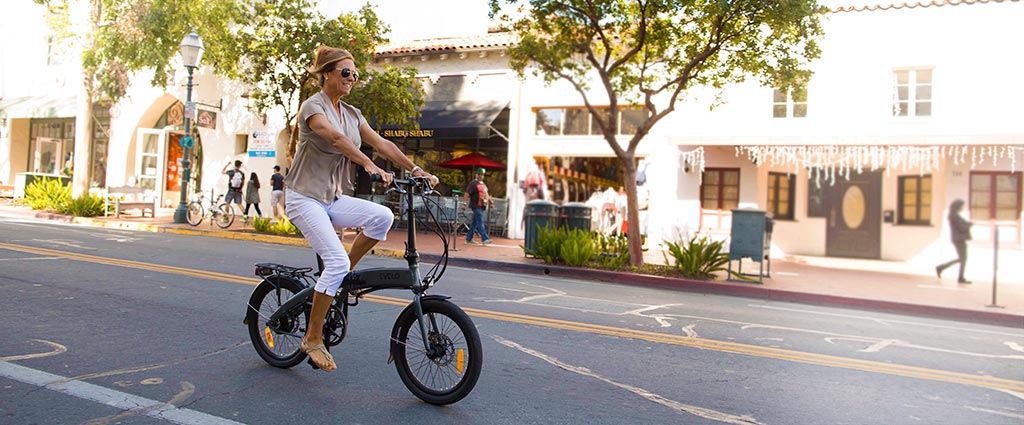The Bicycle Commuter Act of 2019 Seeks to Restore a Tax Incentive for Bicycle Commuters
In an effort to encourage bicycle and electric bike commuting in the United States, Representatives from Oregon, Florida, and Massachusetts introduced a new, bipartisan bill that would restore and expand tax incentives for some riders, allowing them to receive employer-paid transportation benefits of as much as $53 per month tax-free.
“The bicycle is the most efficient form of urban transportation ever devised. Cycling reduces carbon emissions, provides enormous physical and mental health benefits, and is one of the most cost-effective modes of transportation available,” said Representative Earl Blumenauer, an Oregon Democrat, as he introduced the proposed legislation into Congress on March 4, 2019.
Existing Commuter Benefits
American workers pay taxes on their wages, bonuses, and some of the benefits they receive, but there are exceptions. For example, employers in the United States may offer commuter benefits to workers who drive or ride public transportation to their office or job site. Qualified transportation benefits may total $256 per month for the cost of commuting and $256 per month for the cost of parking. Employers pay these benefits and employees receive them tax-free.
A similar but smaller reimbursement of $20 per month was available to bicycle and electric bike commuters from 2009 until 2017. That incentive was explicitly suspended as part of President Trump’s Tax Cuts and Jobs Act (which is officially known as Public Law 115-97). Revoke the bike benefits could increase federal tax revenue by about $5 million annually.
The Bicycle Commuter Act of 2019
“Communities across the country have realized [the benefits of bicycle and electric bike commuting] and substantially invested in building better bike networks and improving facilities for biking to work,” said Representative Blumenauer. “These investments are one of the reasons that rates of biking to work have nearly doubled since 2000 while driving and public transportation rates have increased by 16 percent and 26 percent, respectively.”
“Despite these impressive developments, there is currently no commuter tax benefit for biking to work. Public Law 115-97 suspended the bicycle commuting reimbursement benefit through 2025, taking away a valuable financial incentive for people who choose to bike to work,” said Blumenauer.
If the Bicycle Commuter Act of 2019 passed this would change. Commuters riding an electric bike or a conventional bicycle to work could claim up to 20 percent of the already permitted parking benefit each month pre-tax.
The legislators behind the bill believe promoting cycling is about more than just transportation.
“Incentivizing bicycle commuting helps people stay active, promotes a clean environment and is good for the economy,” said Republican Representative Vern Buchanan of Florida, one of the bill’s co-sponsors.
“Access to transit is not only an economic issue, it’s an equity and public health issue,” said Democratic Representative Ayanna Pressley of Massachusetts who is also one of the bill’s sponsors. “As representatives of the people, it is our responsibility to invest in transit options like biking that offer flexible and efficient means for everyday travel, recreation, and commuting for all communities.”
Of course, bicycling to work, to school, to run errands, or even for recreation is a personal choice that may not be driven by a tax incentive or employee benefit.
“While there are any number of reasons that a particular cyclist might choose to ride an electric bike, three of the most important ones to take into consideration are the ways that electric bikes can help save time and money, the ways they help contribute to a healthier lifestyle, and the fact that they represent an environmentally friendly mode of transportation. At the end of the day, however, many cyclists choose electric bikes simply because they’re fun to ride. Perhaps one of the most important reasons for choosing an electric bike, then, is that they make it possible for people of all ages, skills, fitness levels, and abilities to enjoy the pure pleasure of riding a bike,” wrote Boris and Yevgeniy Mordkovich in “The Complete Electric Bike Buyer’s Guide.”

